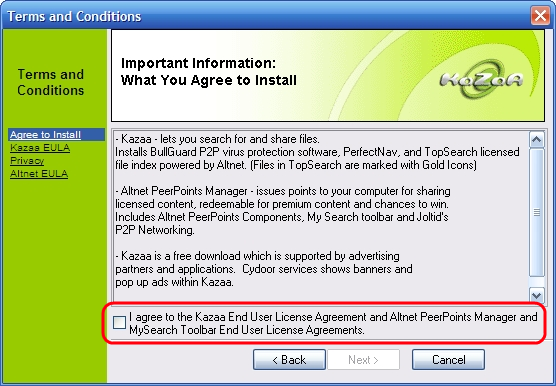Man is least himself when he talks in his own person. Give him a mask, and he will tell you the truth.
– Oscar Wilde
And what a mask we've given the world. People show their true colors on the Internet. Ryan revealed the crazy things people search for that he found in his work with search engines, and there's a reason that entities want to track you through your online behavior.
However, many of the ways people act behind a screen would be despicable, annoying, or illegal in real life. Let's look at the things we take for granted online, and see how they would likely play out if you took them into the "real world."
Piracy
Online
Piracy is rampant on the Internet, a dark practice fueled by deception and malware. Stealing what you didn't pay for is really easy online, and the boundaries appear to be different – if you steal a movie from a store, they can't sell that copy to someone else, but if you pirate Photoshop that doesn't take it away from anyone else. Though piracy can have some good effects, we aren't here to debate it. But what if this kind of theft was as rampant offline?
Offline
Since stealing will become such a common practice, most physical stores won't even try to stop people from doing it. Instead, they'll have an attendant watching a box near the store's exit, so people can throw money in for the items they're taking if they so choose. Of course, there are still some retailers who will insist their product is worth paying for, but most people won't bother with them. Why would you, when another shop right down the street is likely to let you walk right out with the same item?
Several industries would collapse entirely, meaning lots of people would have no reason to work. In fact, love of the work is really all that remains in most jobs that provide a product. Businesses that provide a service that can't be stolen, like landscaping, love the spread of piracy offline. Without a price to back their hard work, however, most industries can't keep up.
License Agreements
On The Internet
End User License Agreements, or EULAs, are all over the place online; you probably agreed to at least one today! From the absolutely ridiculous to those that casually inform you of an incoming toolbar onslaught, there isn't much you can do on the Web without signing your life away. There are ways to understand them more easily online, but what if they extended to your offline life?
Logged Off
Can you imagine having to agree to 50-page documents to do everyday tasks? Let's say you're in the drive-thru at Wendy's (ready to pay with your fancy fast-food Android app) and the worker says to you "By pulling forward, you agree to Wendy's terms and conditions for as long as you're interacting with our store." Thinking nothing of it, you'd probably just move on ahead to get your food. Much to your surprise, your small order of a hamburger and fries has grown to include three milkshakes, a smoothie, five desserts, and a dozen drinks.
Indignant, you yell at the guy behind the window, demanding to know how your $4 order has ballooned into a $50 meal. Sighing, he explains, "Don't you remember agreeing to our terms a moment ago? We reserve the right to add whatever you want to your order and once you've left the menu board you're locked into a purchase."
Throw in garbage like OpenCandy being used in installers and license agreements online, and you might never figure out what exactly was in those milkshakes you bought.
FIRST!
The Interwebs
This one doesn't require much explanation; we all know that YouTube comments are the cesspool of the Web. Open any YouTube video, news article, or post from a celebrity on Facebook and you'll undoubtedly see some moron posting "FIRST!!!" to prove to everyone that he got there before you did. The comment adds nothing; it simply takes up space and shows that the person really has nothing better to do since their greatest achievement for the day is "winning" a comment "race" that nobody cared about a decade ago when YouTube was founded, let alone now.
It's not just a YouTube thing, either. Case in point:
In Meatspace
Let's picture any queue you wait in on a semi-regular basis. Whenever you're waiting in line to pay for coffee, at an amusement park, playing a board game, or doing pretty much anything else that involves waiting your turn, the person who goes before everyone else has to blurt out "FIRST!" before moving onto his activity. Wouldn't that be annoying? Multiple times a day, every day, met with sighs and other signs of extreme impatience from all the sane people in the area, including you?
http://www.youtube.com/watch?v=CmRh9tFYC68
To get a jump on being the first to do everything, these people would jump in an empty line just to shout their stupid claim. Hopefully these people would get a clue and shut up, but if YouTube has taught us anything, we know that will never happen. It's too bad that you can't downvote things people do in life...
Taking it Offline
These surely aren't the only behaviors we see online that would be insane in the real world, but it's fun to stop and think about the relativism that's accepted when it comes to the Internet. This phenomenon seems to follow the virtuality fallacy, the mistaken idea that just because something happens in a virtual space means it isn't real.
Will more online oddities spread to the "real world" as time goes on, or will we curtail these behaviors? Stick along for the ride and find out; it's anyone's guess!
Looking for ways to shut down annoying behavior online? Learn how to deal with trolls and what constitutes a no-no on Twitter to make sure you can defuse the idiots.
What other online actions would be really awkward offline? What stories could you come up with if these behaviors made it into the real world? If you're got something to say, leave it in the comments below and let's keep the list going!
Image Credits: People lining up Via Shutterstock, Pirate via Shutterstock, Man With Food via Shutterstock




